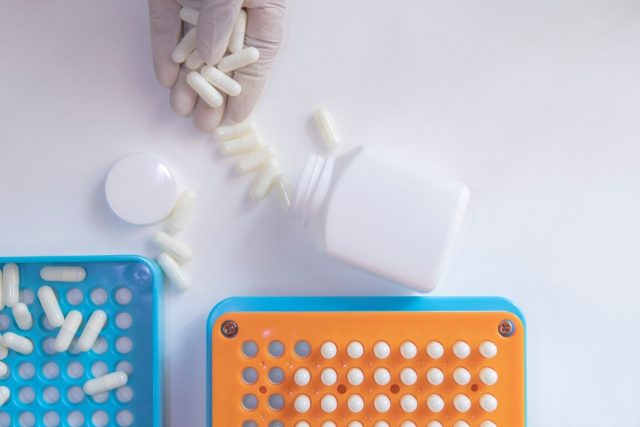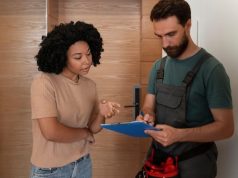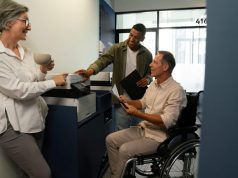Compounding pharmacies play a critical role in healthcare, providing customized medication to meet the unique needs of patients. However, with the growing number of compounding pharmacies in the market, it can be difficult to assess whether your compounding pharmacy partner is compliant with all regulatory requirements. Non-compliance can have serious consequences for both patients and providers, ranging from medication errors and quality issues to legal and financial penalties. This is why Tailor Made Compounding in Nicholasville, Kentucky makes safety and compliance top priorities.
In this article, we will explore some key factors to consider when selecting a compounding pharmacy partner and how to assess their compliance with applicable regulations. By following these guidelines, you can be more confident that your compounding pharmacy partner is committed to providing safe and effective medications that meet the highest standards of quality and compliance.
Licensing & Accreditation
Licensing and accreditation are two important considerations when evaluating a compounding pharmacy’s ability to provide safe, effective, and compliant compounded medications.
When selecting a compounding pharmacy partner, you should verify the pharmacy is licensed in all states in which you serve patients. If you are unsure about the licensing status of your pharmacy partner, all state boards of pharmacy maintain license verification tools on their websites.
It is also important to understand most states have separate licenses for sterile and non-sterile products. Make sure your compounding pharmacy holds the appropriate license for the medication you are prescribing.
Not all states hold compounding pharmacies to the same standards. Some states, such as California, hold compounding pharmacies to higher standards. For example, the California Board of Pharmacy conducts on-site annual inspections for any compounding pharmacy licensed to dispense sterile compounded medications.
Beyond the required state licensing, it is also key to understand what accreditations your compounding pharmacy partner holds. While state licensing is a requirement, accreditation, on the other hand, is a voluntary process in which an independent organization evaluates the pharmacy’s operations, processes, and procedures to ensure compliance with industry standards. Accreditation provides an additional layer of oversight and verification that the pharmacy is committed to providing safe and effective medications. Some of the key accreditations to look for include:
• Pharmacy Compounding Accreditation Board (PCAB) – Compounding Pharmacy – ACHC
• NABP Compounding Pharmacy Accreditation – Compounding Pharmacy Accreditation | National Association of Boards of Pharmacy (NABP pharmacy)
• LegitScript – Healthcare Merchant Certification | LegitScript
Supply Chain
The integrity of supply chains is a critical factor in many industries and the pharmaceutical industry is no exception. The supply chain is a critical component of the operations of a compounding pharmacy. Compounding pharmacies rely on a steady supply of high-quality raw materials, including active pharmaceutical ingredients (APIs), excipients, and other materials, to prepare customized medications for patients.
The quality and safety of the medications produced by a compounding pharmacy are directly linked to the quality and safety of the raw materials used in their preparation. For compounding pharmacies, raw materials utilized in compounded pharmaceutical medications should be sourced only from FDA-registered drug manufacturers. Tailor Made Compounding only sources its raw materials from FDA-registered drug manufacturers.
Testing & USP Compliance
Is your compounding pharmacy conducting appropriate testing to reduce the risk of contamination (sterility) and confirm the strength (potency) of its compounded medications?
Every time a compounding pharmacy compounds a batch of sterile products, it is required to send a sample of that batch to a third-party laboratory to assess the sterility of the batch BEFORE releasing and dispensing products from that same batch. This process typically takes around 14 days once the sample is received by the third-party laboratory.
Just like drugs from CVS and Walgreens, compounded drugs have a limited shelf life, which is referred to as the “Beyond Use Date” (BUD). For sterile drug products, the longest allowable BUD, based on current regulations, is 180 days from the date of compounding. One important component of assigning a BUD to a sterile drug is testing the potency of the drug at various points in time. In other words, a compounding pharmacy will compound a batch of a particular drug and send a sample of that batch to a third-party laboratory to test the potency at designated timeframes (day 0, 30, 60, …180).
If the drug’s potency is determined to be too low or too high, then the drug is considered “out of specification” and the compounding pharmacy must account for that failure when assigning a BUD. The most common drug specification is 90.0% to 110.0%. So, for example, if Drug A’s potency is 95% when tested on Day 90 and then 85% when tested on Day 120, then the BUD assigned to that drug must not exceed 90 days.
FDA Compliance
Did you know that federal law restricts compounding to certain drugs? The Food, Drug, and Cosmetic Act, which is the primary federal law by which compounding pharmacies are regulated, limits 503A compounding pharmacies, like Tailor Made, to only compound drug substances that:
- Comply with an applicable United States Pharmacopeia (USP) or National Formulary (NF) monograph if one exists, and the USP chapter on pharmacy compounding;
- Are components of FDA-approved drug products if an applicable USP or NF monograph does not exist; or
- Appear on the FDA’s list of bulk drug substances that can be used in compounding (the 503A bulk list) if such a monograph does not exist, and the substance is not a component of an FDA-approved drug product.
The Right Compounding Pharmacy Partner
As discussed, there are many important factors to consider when choosing your compounding pharmacy partner. While this article is not intended to provide a comprehensive guide to assessing a compounding pharmacy’s compliance with all state and federal regulations, it does address fundamental aspects of compounding compliance. In summary, when assessing your compounding pharmacy partner, be sure to ask the following five questions:
- What licenses and accreditations do you hold?
- Are your raw materials sourced from FDA-registered drug manufacturers?
- Are your compounded medications tested by a third-party laboratory for sterility and potency?
- Can you provide the results of your product testing?
- Do you compound only products compliant with the Food Drug and Cosmetic Act?
The team at Tailor Made Compounding in Nicholasville, Kentucky works tirelessly to ensure they meet the highest standards possible in safety, quality and effectiveness. If you would like to learn more about any of the topics covered in this article, please contact Tailor Made Compounding at (859) 887-0013.
About Tailor Made Compounding
Tailor Made Compounding is a 503A compounding pharmacy located in Nicholasville, Kentucky. The Pharmacy is licensed in 46 states and holds LegitScript certification and NABP accreditation. Tailor Made prides itself on offering healthcare practitioners and patients high-quality, custom compounded formulations and outstanding customer service. Tailor Made’s experienced pharmacy team works closely with patients and healthcare practitioners to provide innovative solutions for health and wellness. The Pharmacy operates out of its 20,000 square foot compounding facility, which is designed to exceed current United States Pharmacopeia guidelines.








